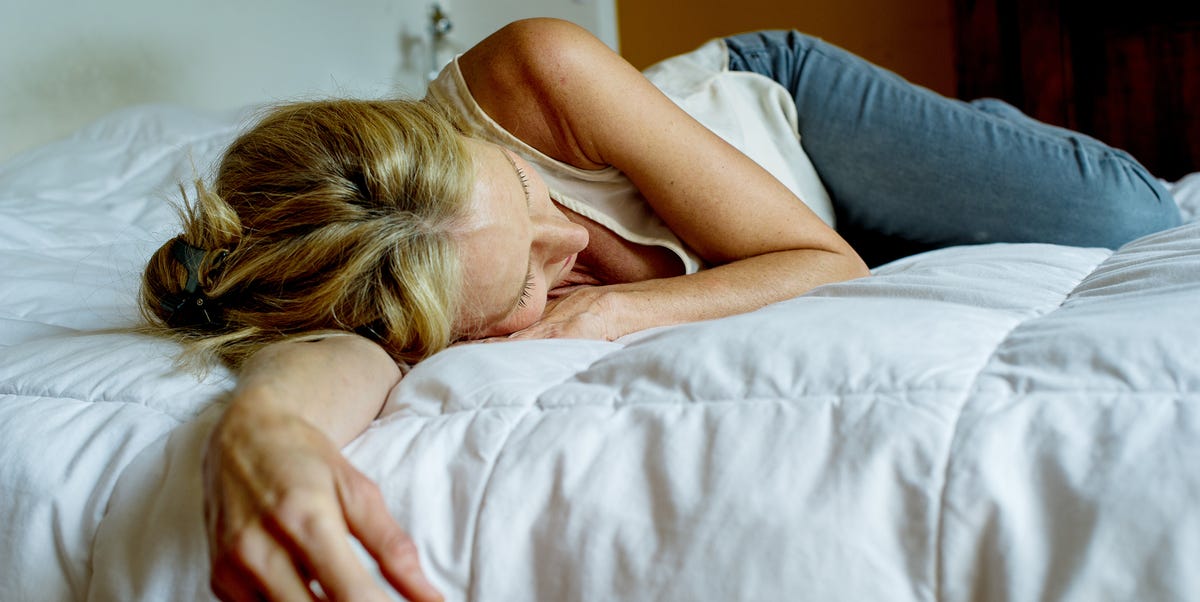Many chronic health conditions can be difficult or impossible to recognize just by looking at a person or by checking for one specific symptom. Depression, for example, does not only present as extreme sadness. There is an array of subtle depression symptoms involving the mind and body of which to be aware.
Meet the experts: Richard Kravitz, M.D., M.S.P.H., a professor of internal medicine at the University of California, Davis; Simon Rego, Psy.D., professor of clinical psychiatry and behavioral sciences at Albert Einstein College of Medicine and director of psychology training at Montefiore Medical Center.
“Depression doesn’t always look like debilitating sadness,” says Richard Kravitz, M.D., M.S.P.H., a professor of internal medicine at the University of California, Davis, and an expert in identifying depression in primary-care settings. “Patients are reluctant to consider depression as a cause of their symptoms—in part because they may equate it with weakness, but also in part because they simply don’t associate those symptoms with depression.”
Recognizing the other possible symptoms, though, may be the difference between suffering and getting the treatment you need. Here are the surprising signs of depression to be aware of.
1. Chronic pain
Depression and pain share some of the same biological pathways and neurotransmitters. According to a 2024 study in the journal Pain, 56% of people with depression or anxiety also experience chronic pain, compared to just 17% of those who don’t have depression or anxiety. “When you’re in a negative state, you’re apt to tune into your body more carefully, and therefore feel any discomforts more acutely,” Dr. Kravitz explained. You might also notice stomachaches and headaches, or just experience greater sensitivity to pain in general.
2. Weight gain
Multiple studies have confirmed a link between depression and obesity, with researchers noting that having depression makes weight gain more likely, and being overweight or obese also increases your chances of developing depression.
On the flip side, some people with depression may lose weight, as depression zaps appetite.
3. Rage or anger
If the slightest mishap sends you into a rage, or grouchy is your new normal, you may be depressed, as it’s not uncommon for these types of emotions to present together. “Once you’re on the negative side of the house, you’re more accessible to the rooms where other negative moods hang out—irritability, frustration, and anger,” says Simon Rego, Psy.D., professor of clinical psychiatry and behavioral sciences at Albert Einstein College of Medicine and director of psychology training at Montefiore Medical Center. “You’re not directly there, but it’s a short walk.”
4. Feeling like a zombie
Feeling blah? Neutral? Numb? “Most of us have motivations that get us out of bed in the morning, whether it’s work, exercise, socializing, or making breakfast,” says Rego. “But for people who are depressed, those pulls dry up.” At the same time, things that once brought tears or smiles now barely register. This kind of zombie behavior is a hallmark of depression, and it can make you seem cold, distant or aloof, pushing away the people who would otherwise give you love and support.
5. Drinking more alcohol
According to the American Addiction Centers, people with depression often turn to alcohol or other substances as an attempt to self-medicate. And though one drink may take the edge off, a second or third may amplify negative emotions—anger, aggressiveness, anxiety, and greater depression. The healthy limit, per the Centers for Disease Control and Prevention (CDC), is one drink per day for women, and two drinks per day for men.
6. Being on social media 24/7
Or gambling or shopping…basically doing anything in excess, especially online. A review published in Psychiatry Research noted that people with depression have a higher risk of developing internet addiction (spending an unusually high amount of time online doing things like scrolling social media, playing video games, or shopping) and vice versa. Why? They may feel deprived of real human companionship and/or may be using the online world to escape from their thoughts and feelings. While Internet addiction and depression are separate diagnoses, they often overlap. “The quest for a short-term boost is a common coping mechanism,” says Rego.
7. Difficulty making decisions
We make loads of conscious decisions every day, and most of them are no-brainers. Snooze or wake up? Get dressed or stay in pajamas? Eat oatmeal or eggs? Read or watch TV? If these simple choices start to feel more difficult to make, it may be a sign of depression. “When we’re depressed, those cognitive processes take a big hit,” explains Rego. “Little things we normally don’t think twice about suddenly become weighty decisions.”
8. Not maintaining personal hygiene
Even if your grooming routine was modest to begin with, it may disappear when you’re depressed. An Australian study recently found that maintaining personal hygiene and grooming routines is a top challenge for people with depression. “It’s a spectrum,” says Rego. “Neglecting your physical wellbeing and appearance is only problematic when it crosses over into distress or dysfunction.”
9. Sleeping too much or too little
Depression can mess with sleep in multiple ways. Many people struggle to sleep well, and either have trouble falling asleep or staying asleep. But depression can also have the opposite effect, with some sleeping excessively—all night, and then a good part of the day as well. Research in the Journal of Affective Disorders found that both insufficient and excessive sleep are associated with depression.
Related Stories

